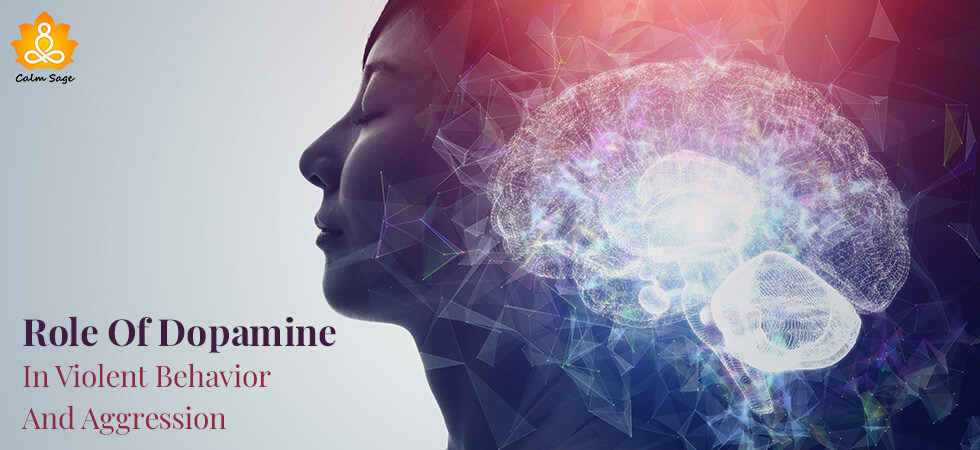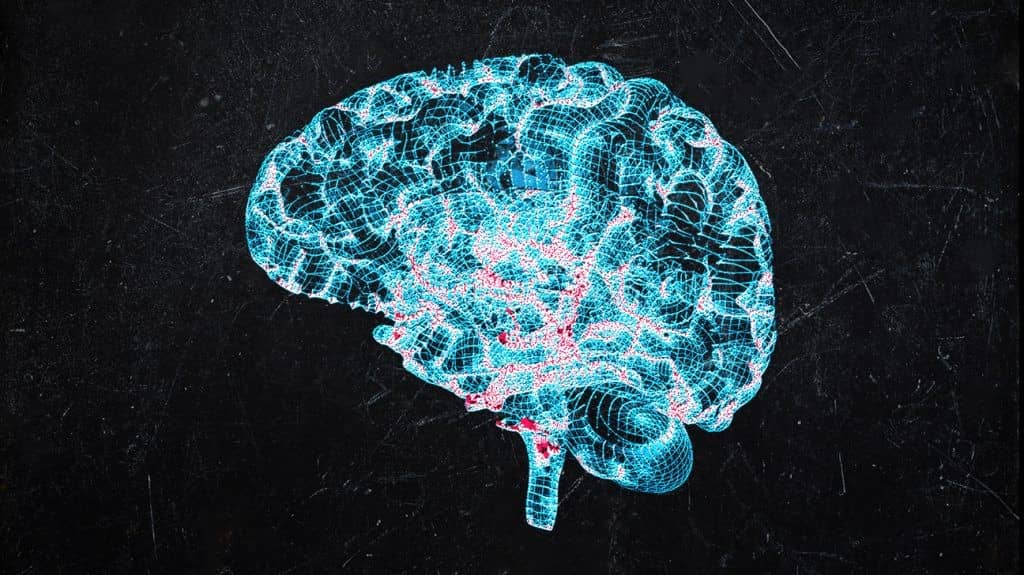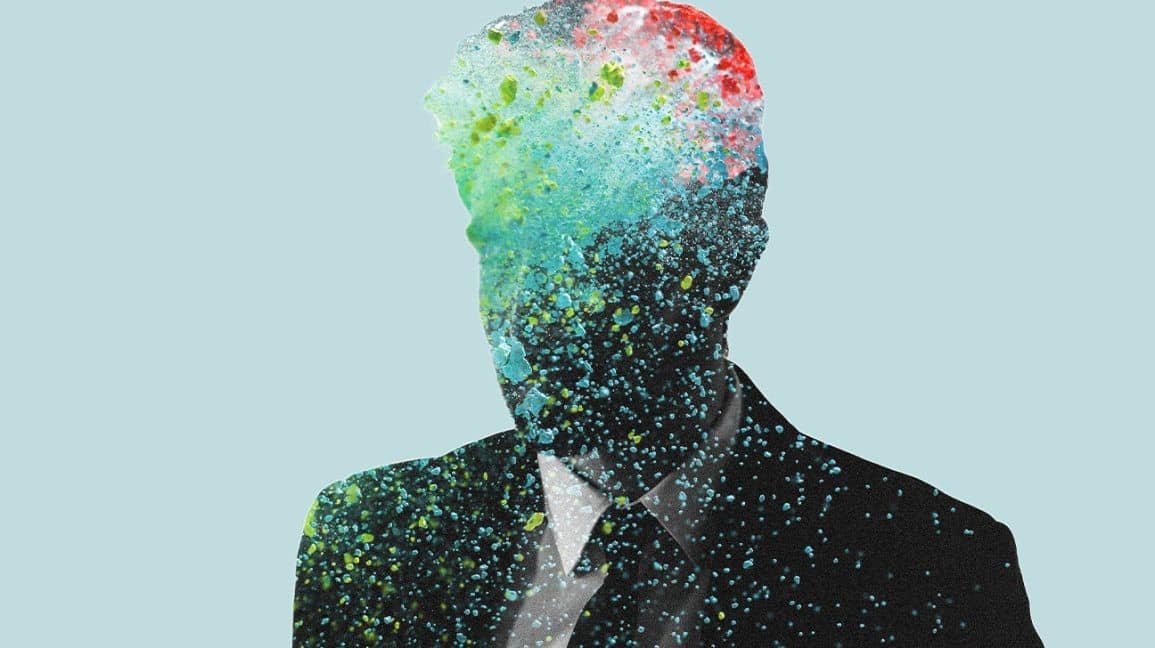The Role Of Dopamine In Violent Behavior And Aggression

What do you know about the feel-good hormone? What do you think dopamine’s role is? Does it help us feel pleasure, gratification, motivation?
Dopamine is the neurotransmitter that is responsible for many of our brain functions such as motor control and emotion regulation. Dopamine imbalance in the brain can cause dysfunction. This feel-good hormone is released when we engage in pleasurable activities or when we seek out things that bring us gratification – from food to drugs.
In my previous articles, I’ve talked about how dopamine can be unhealthy for us. If not balanced, dopamine can become addictive. Low dopamine can not only affect your brain but your body too. It can make you feel tired, restless, unmotivated, depressed, and even anxious.
However, in a new study, it was found that low dopamine in the brain can be linked with aggression or criminal behavior.
This study focused on 18 twenty-year-olds where they had to compete against each other in a virtual game. They were told that their opponent in another room who was able to cheat may steal some of their winnings.
In this study, it was found that during periods of competition, subjects with low dopamine levels lost their focus on their goals and instead acted aggressively. Subjects with more functional dopamine or reward system were not as aggressive and were able to concentrate but subjects with low dopamine levels were more likely to be distracted.
Effects Of Low Dopamine On Your Health

The perfect balance of dopamine can help you focus, learn, and stay motivated while dopamine deficiency can make it difficult to concentrate, make you feel less enthusiastic, and can cause movement difficulties.
Neurotransmitters such as dopamine communicate with our brain cells. When the communication is disrupted, the messages are lost. The consequences of this can result in many health conditions including Parkinson’s disease, depression, anxiety, etc.
Neurotransmitters are responsible to transport messages and since these neurotransmitters can affect areas of the brain, any kind of miscommunication or error in transmission can trigger moods and behaviors such as anger, aggression, mood swings, anxiety, and so on.
The Role Of Neurotransmitters And Hormones

Aggression and criminal activities are a growing concern and in many scientific studies, it is recorded that neurological abnormalities are a reason behind criminal and violent behavior. The frontal cortex plays a huge role in social cognition and impulsivity.
The frontal cortex’s role is huge and involves functions such as social reasoning, personality, self-awareness, and other executive functions. Any injuries or dysregulation in the frontal lobe have been involved in instances of aggression.
The limbic system, particularly the amygdalae are involved because they intervene in basic emotions and drive-related behaviors. The prefrontal cortex is responsible for actions such as decision-making and it also directs our social behavior. Any damage to the amygdala can be associated with people carrying out actions without worrying over the consequences of their actions.
Neurotransmitters such as dopamine and norepinephrine may potentiate aggressive behavior. Behavioral activation, motivation, and reward system all involve the activation of dopamine, the feel-good chemical. It is also found that any dysregulation of dopamine can modulate aggression, increase impulsivity, and decrease emotional regulation.
Understanding the role of neurotransmitters and hormones in aggressive behavior can help in differentiating between normal brain functioning and persons struggling with maladaptive and dysfunctional activities.
It is also important to understand the role of a person’s genetic and psycho-social background when it comes to aggressive and criminal behaviors.
How To Balance Dopamine Levels?

Low dopamine or dysregulation of dopamine can be harmful to your mind health and body health. So, to help you balance your dopamine levels, here are some tips:
1. Get Enough Sleep
Sleep deprivation can also cause low levels of dopamine. Getting at least 6-7 hours of sleep each night is recommended.
2. Listen To Music
When you feel listless, unmotivated, or unenthusiastic, tune-up your favorite playlist and sing along! This way you’ll boost your dopamine and have some fun.
3. Get Moving
Physical exercises are the best way to regulate your dopamine levels. Not only do you get a good workout but you also feel relaxed.
4. Cut Down Sugar
Sugary and caffeinated substances may increase your dopamine but only temporarily. This sugar high can leave you feeling fatigued when it wears out.
5. Eat Healthily
Yes! Your eating habits also play a role when it comes to regulating your dopamine levels. Keep in mind that what you’re eating is good for boosting your dopamine levels and not temporarily.
Writer’s Thoughts
I know understanding the role of dopamine in various brain functions may be difficult or even challenging. Understanding what dopamine can and can’t do to help you maintain a healthy balance of your brain chemicals.
If you’re experiencing any kind of symptom that suggests you’re low on dopamine, try the above-mentioned tips. If they don’t help, it is recommended that you seek out a professional mental health counselor.
Regulating our hormones is important for our overall health and behavior. Any dysregulation in our neurotransmitters and hormones can result in some harmful behaviors and poor mind and body health.
I hope with this article, you were able to understand the role of dopamine in violent behavior and aggression. For more, you can always reach out to us at info@calmsage.com or follow us on social media.
Do let us know your thoughts and views on this article in the comments section below! We’re always happy to hear from you!
Take Care!




















